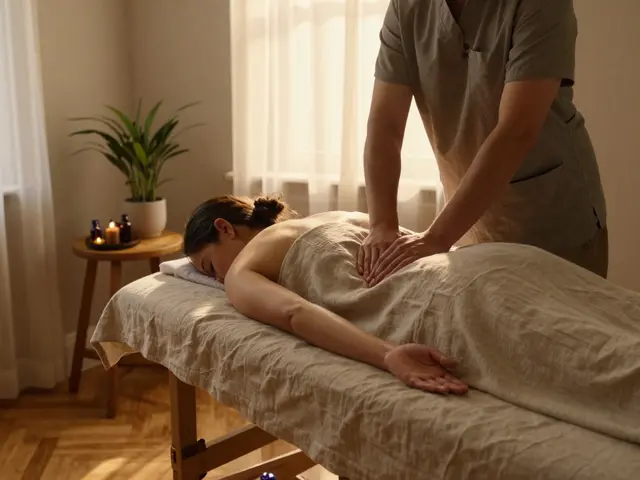Better Sleep: Practical Tips for Restful Nights
Everyone knows a good night’s sleep feels amazing, but getting there isn’t always easy. Below you’ll find straight‑forward steps that actually work, no fluff. Grab a notebook and try a couple of these tonight.
Set Up a Sleep‑Friendly Space
First thing – make your bedroom a cue for sleep. Keep the room cool, around 65°F (18°C), and dark. If street lights spill in, block them with blackout curtains or a simple eye mask. Silence matters too; a white‑noise app or a fan can drown out traffic or a noisy neighbor.
Invest in a comfortable mattress and pillow that support your body. You don’t need a luxury brand, just something that keeps your spine in a neutral position. A tidy room also reduces stress, so clear clutter that might distract you.
Use Relaxation Techniques Before Bed
Your body needs a signal that it’s time to wind down. A 10‑minute massage can do the trick – even a self‑massage of the neck and shoulders releases tension that keeps you awake. Try gentle strokes or use a foam roller to loosen tight muscles.
Combine massage with deep breathing. Inhale for four counts, hold two, exhale for six. Repeat a few times and notice how your heart slows. This simple routine lowers cortisol, the stress hormone that disrupts sleep.
Another easy habit: limit screens at least an hour before bedtime. The blue light tricks your brain into thinking it’s still daytime. Swap phone scrolling for a paperback, a journal, or a short podcast with calming voices.
Watch what you eat and drink in the evening. Caffeine can linger for up to six hours, so keep coffee, tea, and chocolate out after mid‑afternoon. A light snack with protein and complex carbs – like a banana with peanut butter – can keep blood sugar steady through the night.
Consistency is key. Go to bed and wake up at the same time every day, even on weekends. Your internal clock, or circadian rhythm, thrives on regularity and will help you fall asleep faster.
If you’re still tossing, get out of bed after 20 minutes and do a quiet activity in dim light. Reading a physical book or stretching can reset your mind. Return to bed only when you feel sleepy.
Finally, track what works. A quick note in a sleep diary – time you went to bed, wake‑up time, any night‑time awakenings – helps you spot patterns and tweak habits.
Try these steps tonight and see how quickly you drift off. Better sleep isn’t magic; it’s a series of small, consistent actions that add up to big results.






